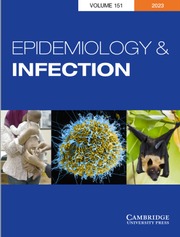Article contents
A Note on Immunology and Malignant Disease.
Published online by Cambridge University Press: 15 May 2009
Extract
The “chronic irritation” theory still retains its interest, though it has not yet provided a thoroughly satisfactory explanation of the origin of that stimulus to growth which causes normal tissue to become malignant. If employed with caution, ideas borrowed from bacteriological work on “transmissible autolysis” may be contributory in the search for the explanation which is desired.
It is important to maintain a careful distinction between the initiation and the continued propagation of the malignant variant.
It seems hazardous to assume that one can apply as immediately valid for cancer those ideas about the natural and acquired resistance of the host which are current in bacteriological literature. On the other hand, it is not suggested that such ideas should be discarded but rather that they should be regarded as suggesting alternative possibilities, none of which can be definitely excluded.
Analogies with immunological reactions to foreign protein (bacterial or animal) certainly suggest the possibility that the cure of cancer may be found in discovery of “the right antibody for the right antigen”; but it is not clear how far such analogies can be accepted as being entirely appropriate; still, owing to the likelihood that new kinds of antigens and antibodies will be discovered, continued search for these factors in cancer is of high importance.
In the present article, which is a sequel to a former discussion on stimulants to bacterial variation, I have considered whether the idea of a stimulus to the production of non-viable variants may be regarded as of immunological interest in relation to the therapeutic problem of cancer.
I have endeavoured to show that this idea is worth consideration, provided that its importance is not exaggerated and that it is correlated with better established data about the principles of immunity.
- Type
- Research Article
- Information
- Copyright
- Copyright © Cambridge University Press 1925
- 1
- Cited by




